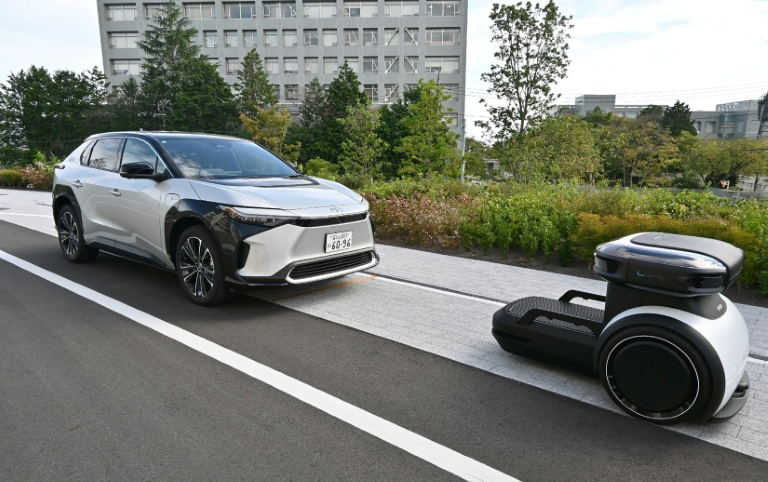Hi, what are you looking for?
By
Published
Top-selling carmaker Toyota opened its new high-tech village in Japan on Thursday, an experimental project to test autonomous driving and other futuristic developments.
It is touted as a real-life setting in which to trial myriad inventions, from flying taxis to robot pets and drones that escort you home at night.
Around 360 Toyota staff and others related to the company will soon move in to smart homes in its “Woven City”.
“This is a test course for the future, not just a town,” Toyota’s chairman Akio Toyoda told an opening event, according to national broadcaster NHK.
The number of residents in the cluster of homes built on a disused Toyota factory at the base of Mount Fuji is eventually expected to grow to 2,000, the firm says.
Toyoda has previously called it a “living laboratory where the residents are willing participants” and inventors can test ideas in a secure environment.
“Homes in the Woven City will eventually serve as test sites for future technology, such as in-home robotics, to assist with daily life,” he said in January.
One example could be robots that learn how to fold shirts, Toyoda said.
The project, first announced in 2020, is led by his son, Daisuke Toyoda.
“Much like test drivers for cars… our residents will be the ones who use and experience the new products and services our inventors develop.”
The company’s e-Palette self-driving buses will also be tested at Woven City, among other autonomous logistics and driving technologies.
With 2,400 staff representing 100 different nationalities, AFP covers the world as a leading global news agency. AFP provides fast, comprehensive and verified coverage of the issues affecting our daily lives.
Canada’s biotech future hinges on risk. Nobel Laureate Sir Michael Houghton urges a VC mindset shift to stop exporting innovation before it scales.
Digital Journal will be returning as the official media partner for Calgary Innovation Week. – Photo by Jennifer Friesen, Digital JournalDigital Journal is returning…
Edmonton’s Glenrose Hospital is helping startups turn prototypes into real patient care by embedding clinical feedback early in development.
James Tweed’s company Coracle’s education technology has also helped nearly 1,200 more ex-prisoners into work within six months of release.
COPYRIGHT © 1998 – 2024 DIGITAL JOURNAL INC. Sitemaps: XML / News . Digital Journal is not responsible for the content of external sites. Read more about our external linking.











